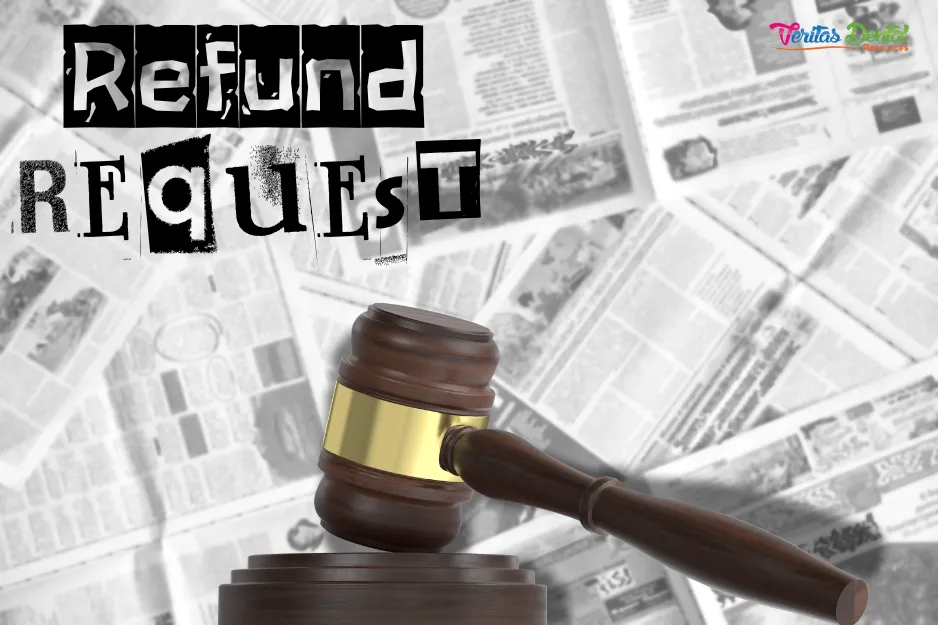
Navigating Refund Requests from Insurance Plans: Legal Obligations When Evidence Is Lacking
In the complex world of dental insurance billing, you may occasionally encounter refund requests from insurance carriers that appear to lack proper documentation. As a dentist, understanding your legal obligations when faced with such requests is critical to protecting your practice’s interests while remaining compliant with contractual and regulatory standards.
1. Clarifying the Situation
Understanding the Request:
When an insurance plan requests a refund, it typically implies that there was an overpayment, billing error, or other discrepancy that needs to be corrected. However, if the request is issued without any evidence or documentation to substantiate a refund, you should proceed with caution.
Key Questions to Consider:
Documentation: Has the insurer provided detailed records or explanations showing where the alleged overpayment occurred?
Contractual Terms: What do your agreements with the insurance carrier say regarding refund procedures, evidence requirements, and dispute resolution?
Regulatory Guidelines: Are there state or federal regulations that govern such refund requests in the context of dental insurance?
2. Legal and Contractual Considerations
Contractual Obligations:
Review Your Agreement: Your contract with the insurance carrier should outline the procedures for handling overpayments or billing errors, including the type of documentation required to support a refund request.
Compliance with Terms: If the agreement specifies that refunds must be substantiated by evidence, you are generally not legally obligated to honor a refund request that lacks such evidence. Conversely, if the contract provides for refunds based on the insurer’s discretion, further investigation may be warranted.
Legal Precedents and Guidelines:
Duty to Refund: Generally, providers are obligated to refund payments when there is clear evidence of an overpayment or billing error. Without such evidence, fulfilling the refund request may not be legally required.
Dispute Resolution: Many contracts include provisions for dispute resolution in cases where refund claims are contested. Engaging in these processes can help clarify the obligations of both parties.
State and Federal Regulations:
Regulatory Oversight: Some states have specific regulations governing healthcare billing and refunds. It’s important to know if any such rules apply to your situation.
Best Practices: Even if not legally obligated, some practices may choose to work with insurers to resolve discrepancies amicably, ensuring ongoing business relationships.
3. Best Practices for Handling Unsubstantiated Refund Requests
Request Detailed Documentation:
Ask for Evidence: Politely request the insurer to provide detailed documentation or an explanation that supports the refund claim. This may include copies of remittance advices, detailed claim adjustments, or audit reports.
Document Your Response: Keep records of all communications with the insurer regarding the refund request. This documentation is vital in case of future disputes or regulatory reviews.
Consult with Legal and Billing Experts:
Seek Legal Counsel: If you’re unsure of your legal obligations, consulting a healthcare attorney can provide clarity and protect your practice from unnecessary liabilities.
Billing Consultant Support: A billing consultant experienced with dental insurance claims can help review the request, ensuring that your interpretation of the evidence (or lack thereof) is sound.
Engage in Open Dialogue:
Communication: Maintain open lines of communication with the insurer. Explain that you require proper evidence to validate the refund request and be willing to review any documentation they provide.
Negotiation: If the insurer eventually provides evidence that suggests a refund is due, negotiate a fair resolution based on the documented facts and the terms of your agreement.
4. Conclusion
In summary, if you receive a refund request from an insurance carrier without any supporting evidence, you are not automatically legally obligated to honor it—provided your contractual agreements and applicable regulations require proper documentation for such claims. It is essential to request clear, detailed evidence and, if necessary, seek advice from legal and billing professionals.
By taking these steps, you can protect your practice’s financial integrity while ensuring that any refund actions you take are justified, transparent, and in line with your contractual and legal obligations. Always remember that proactive communication and thorough documentation are your best tools for managing these complex situations effectively.
This article is for informational purposes only and does not constitute legal advice. Dentists are encouraged to consult with legal counsel regarding specific cases and contractual obligations.
Benjamin Tuinei
Founder - Veritas Dental Resources, LLC
Phone: 888-808-4513
Services:
PPO Fee Negotiators | PPO Fee Negotiating | Insurance Fee Negotiating
Insurance Credentialing | Insurance Verifications
Websites:
www.VeritasDentalResources.com | www.VerusDental.com

